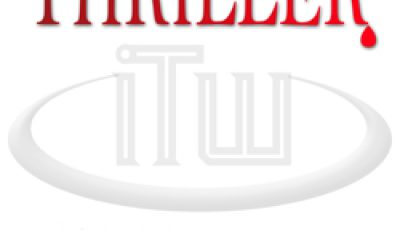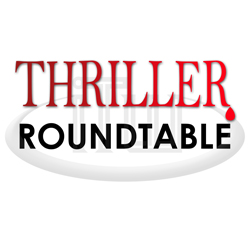

November 1-7: “What is the primary job of a thriller?”
What’s the primary job of a thriller? Is it to provide entertainment and escapism, or is it something more?
The discussion is over, but you can still read what ITW members Linda Fairstein, Carla Neggers, Keith Raffel, Clea Simon, JT Ellison, Brett King, Chris Kuzneski, Andrew Peterson, Jonathan Maberry, Andrew Gross, Robert Dugoni, Mary Kennedy and others posted in the comment trail. Thanks to everyone who took the time to read and comment!
Linda Fairstein was chief of the Sex Crimes Unit of the district attorney’s office in Manhattan for more than two decades and is America’s foremost legal expert on sexual assauly and domestic violence. Her Alexandra Cooper novels are international bestsellers and have been translated into more than a dozen languages. She lives with her husband in Manhattan and on Martha’s Vineyard.
Carla Neggers is the New York Times bestselling author of more than fifty novels. THE ANGEL, a RITA finalist, came out in paperback in May 2010. THE MIST followed in hardcover in June, with COLD RIVER, the second book in her Black Falls series due out in November. Carla currently serves on the ITW board of directors as Vice President, Publications.
Keith Raffel has held a top secret clearance to watch over CIA activities and has founded an award-winning Internet software company. Steve Berry called Keith’s latest book, Smasher: A Silicon Valley Thriller, “taut, tight, and suspenseful” and said it “skillfully carries the reader triumphantly from one climax to the next.”
Clea Simon gave up journalism after three nonfiction books for a life of crime (fiction). The author of two traditional (“cozy”) mystery series, her sixth and most recent release is GREY MATTERS (Severn House, March 2010).
J.T. Ellison is the bestselling author of the critically acclaimed Taylor Jackson series, with novels published in 21 countries. A former White House staffer, she moved to Nashville and began research on a passion: forensics and crime. She has worked extensively with the Metro Nashville Police, the FBI and various other law enforcement organizations to research her novels. Ellison lives in Nashville with her husband and a poorly trained cat. Visit www.JTEllison.com for more insight into her wicked imagination, or follow her on Twitter @Thrillerchick.
Brett King is an award-winning psychology professor at the University of Colorado at Boulder. His debut novel, THE RADIX, appeared in May 2010. New York Times bestselling author Jeffery Deaver calls it, “A topnotch thriller! Part Da Vinci Code, part 24, The Radix is roller-coaster storytelling at its best.” King completed his second thriller and is at work on a third novel.
Chris Kuzneski took a leap of faith after a stint of teaching and newspaper writing to become a novelist. His second novel, SIGN OF THE CROSS became an international bestseller, and was translated into more than fifteen languages. Chris’s fourth book, THE LOST THRONE, debuted in the UK Top-5 and stayed on the charts for several weeks, while the paperback version hit the New York Times list. His latest book, THE SECRET CROWN, is currently available in the UK, and will be released in the US in December 2011.
Andrew Peterson is working on the next novel in a planned series featuring Nathan McBride, a former Marine Corps sniper and ex-CIA operative. Born and raised in San Diego, California, Andrew attended La Jolla High School before enrolling at the University of Oklahoma, where he earned a B.S. Degree in Architecture. Andrew and his wife Carla, live in Central California.
Jonathan Maberry is a NY Times bestselling novelist, multiple winner of the Bram Stoker Award, and writer for Marvel Comics. His recent works include ROT & RUIN (Simon & Schuster), WANTED UNDEAD OR ALIVE (Citadel Press, co-authored by Janice Gable Bashman), and MARVEL UNIVERSE VS THE PUNISHER (Marvel Comics).
Andrew Gross is the co-author of five New York Times #1 bestselling novels with James Patterson, including JUDGE & JURY, LIFEGUARD, THIRD DEGREE, and JESTER. Before turning to writing, he had a successful business career in sports apparel, managing several industry leaders, including Head Sportswear. He lives in Westchester County, New York, with his family.
Robert Dugoni is the author of WRONGFUL DEATH, the highly anticipated sequel to the New York Times bestselling THE JURY MASTER. Dugoni is also the author of the critically acclaimed DAMAGE CONTROL, and the expose, THE CYANIDE CANARY.
Mary Kennedy is a clinical psychologist in private practice and the author of The Talk Radio Mysteries. She lives on the east coast with her husband and eight neurotic cats. The cats have resisted all her efforts to psychoanalyze them, but she remains optimistic.
- LAST GIRL MISSING with K.L. Murphy - July 25, 2024
- CHILD OF DUST with Yigal Zur - July 25, 2024
- THE RAVENWOOD CONSPIRACY with Michael Siverling - July 19, 2024

